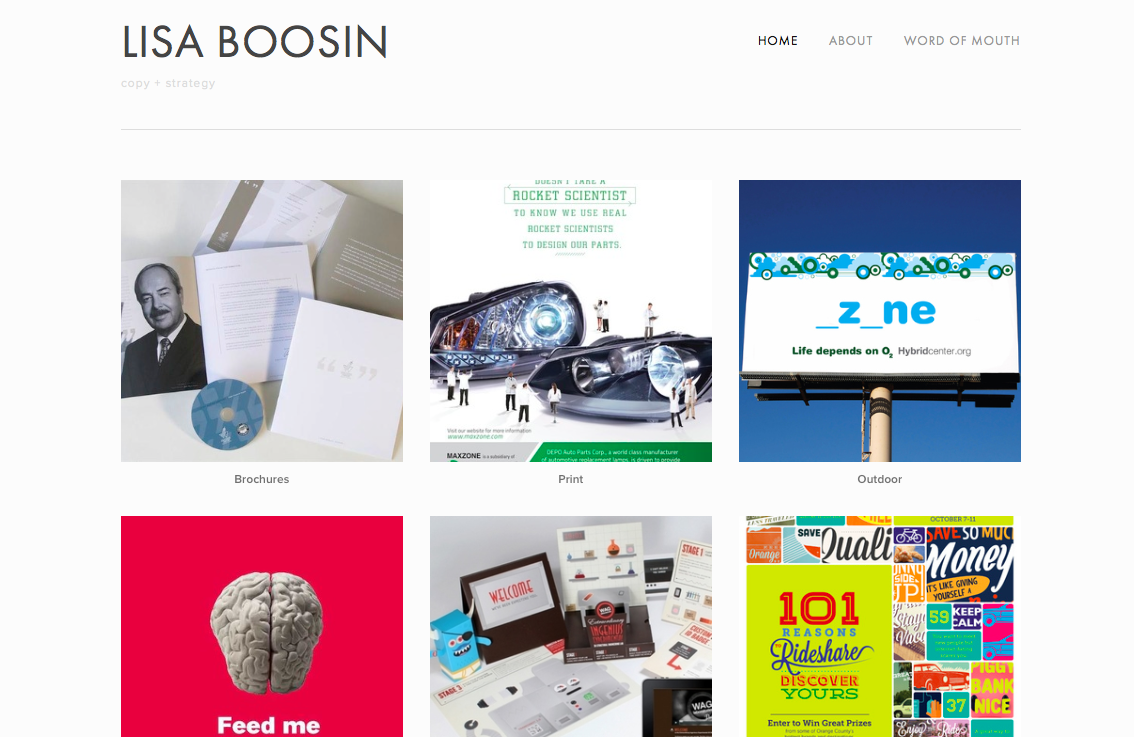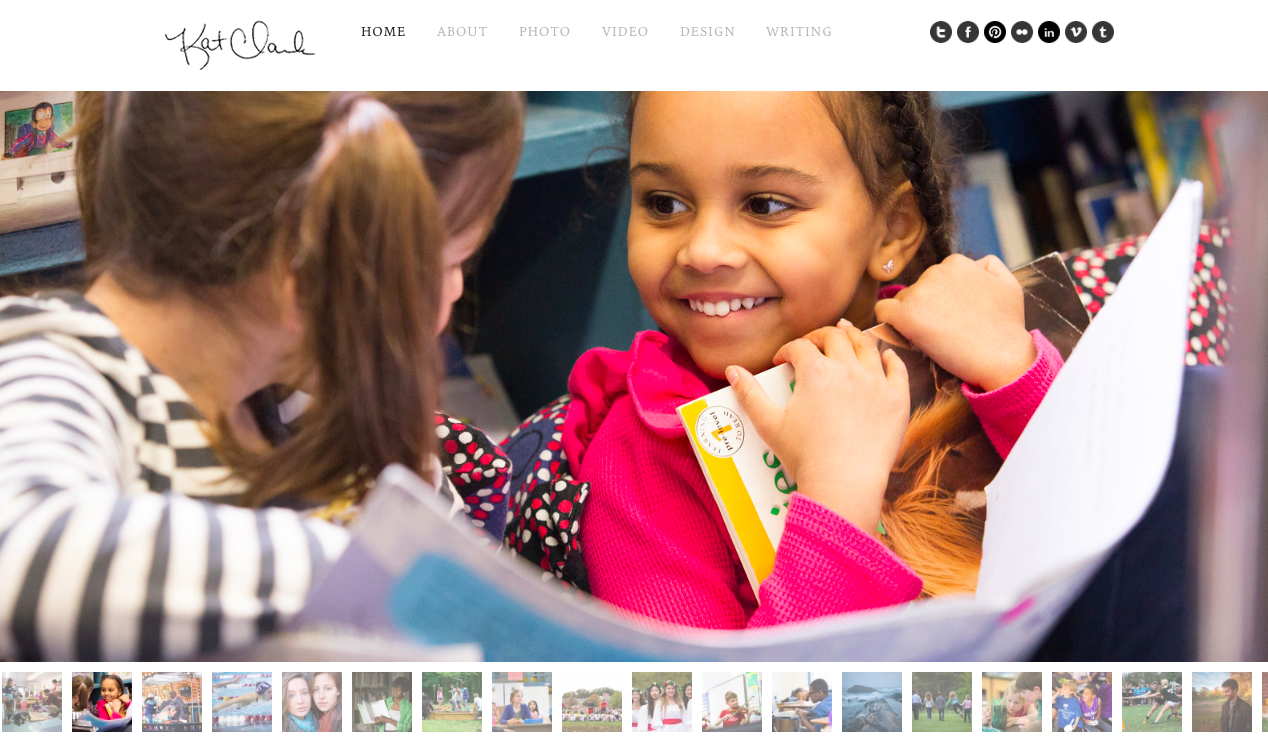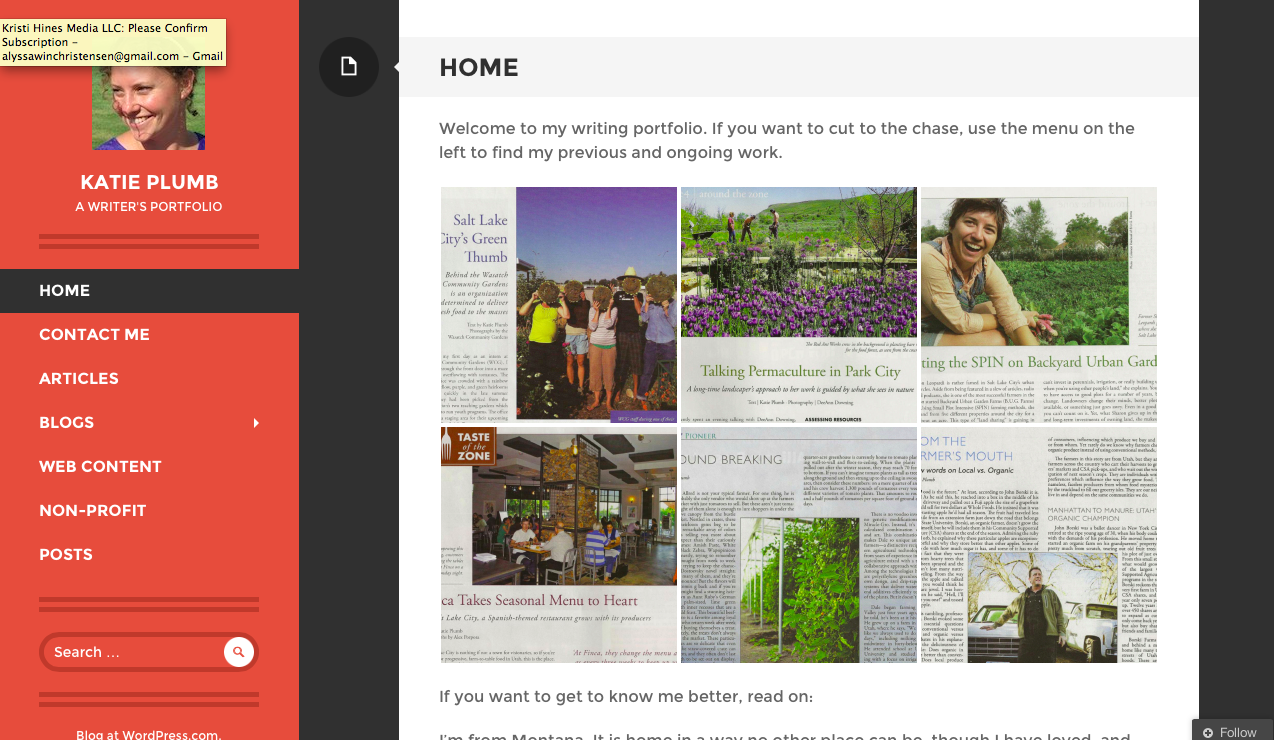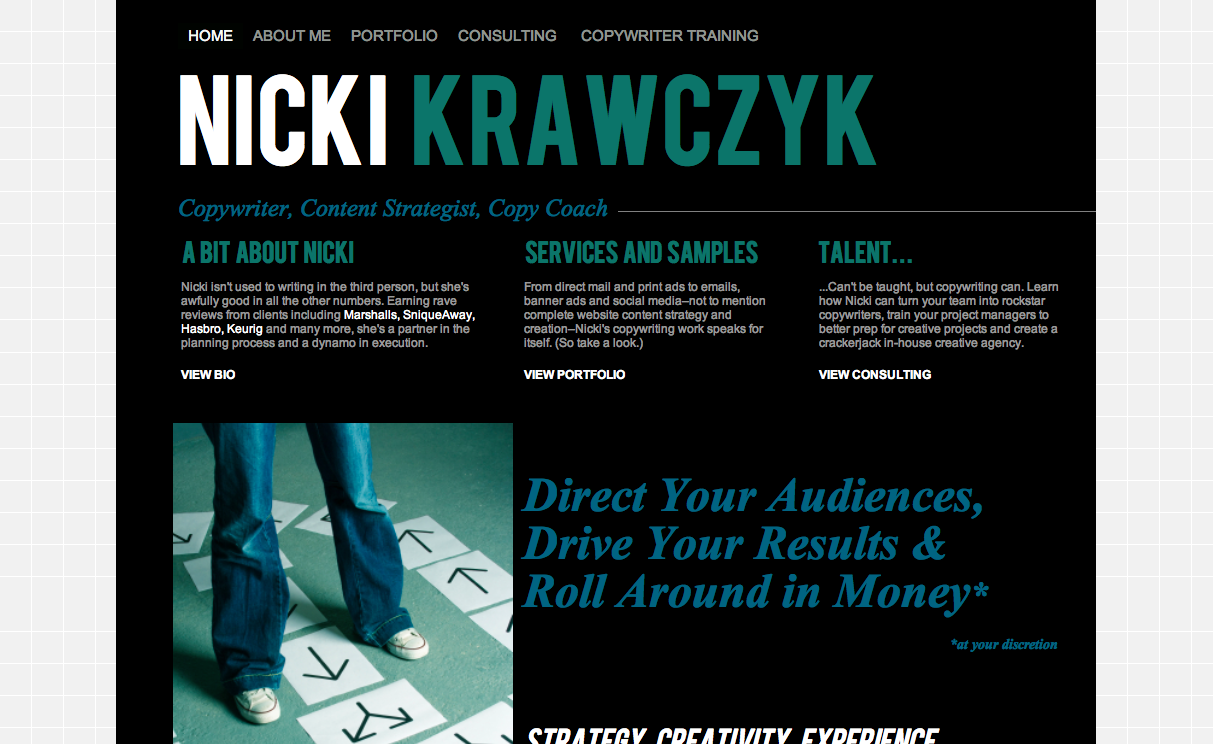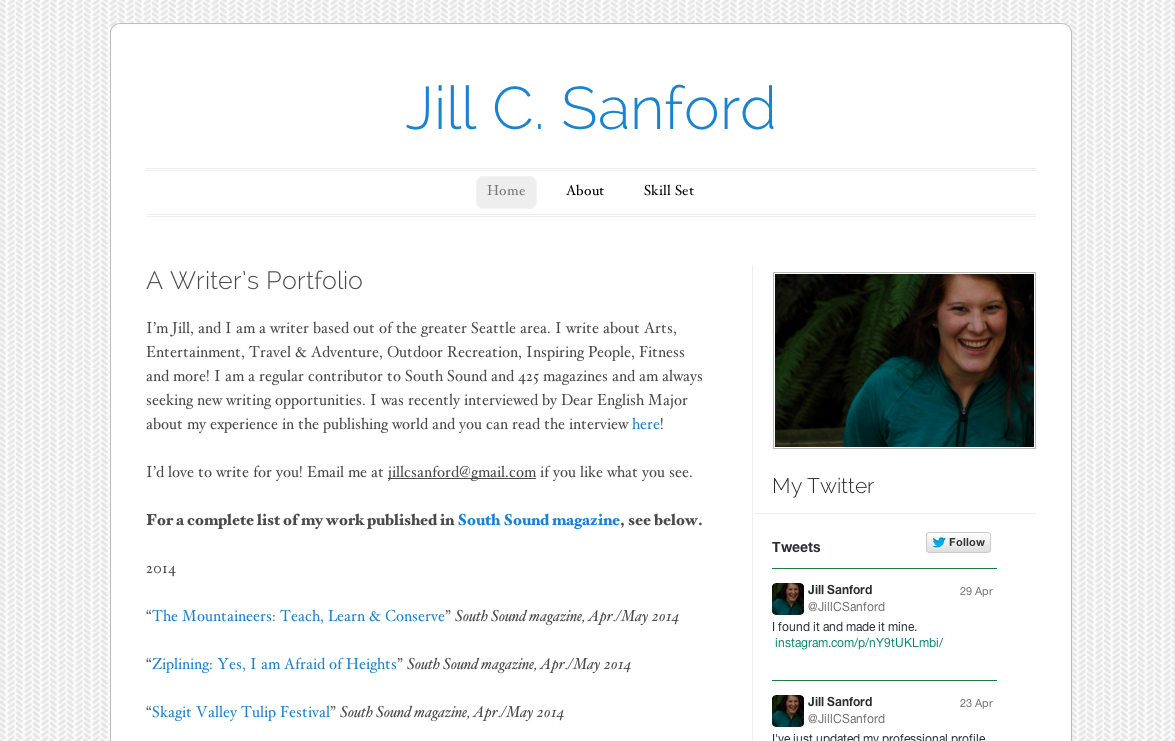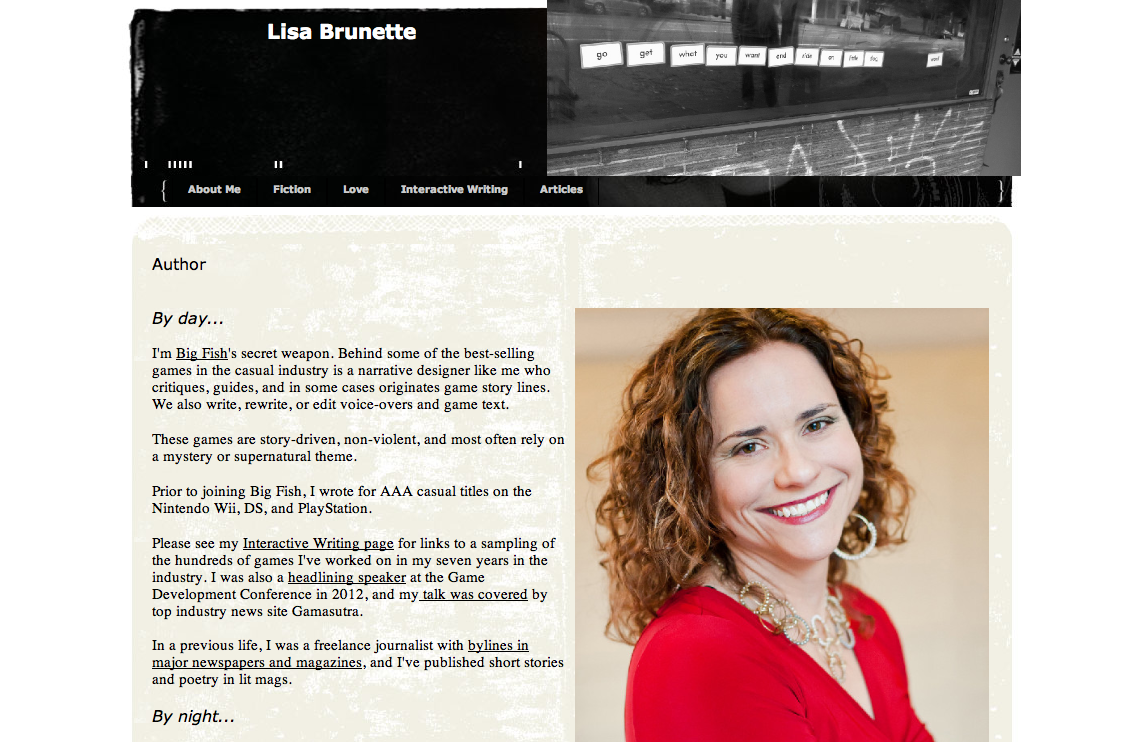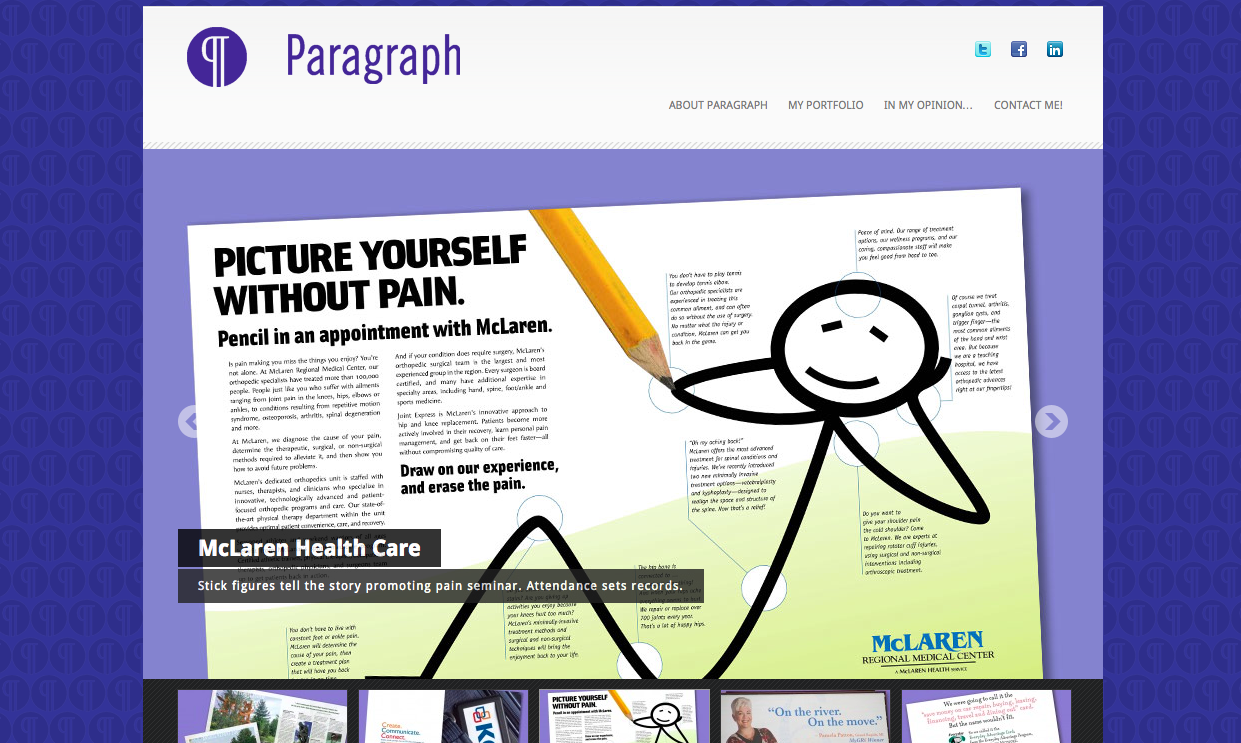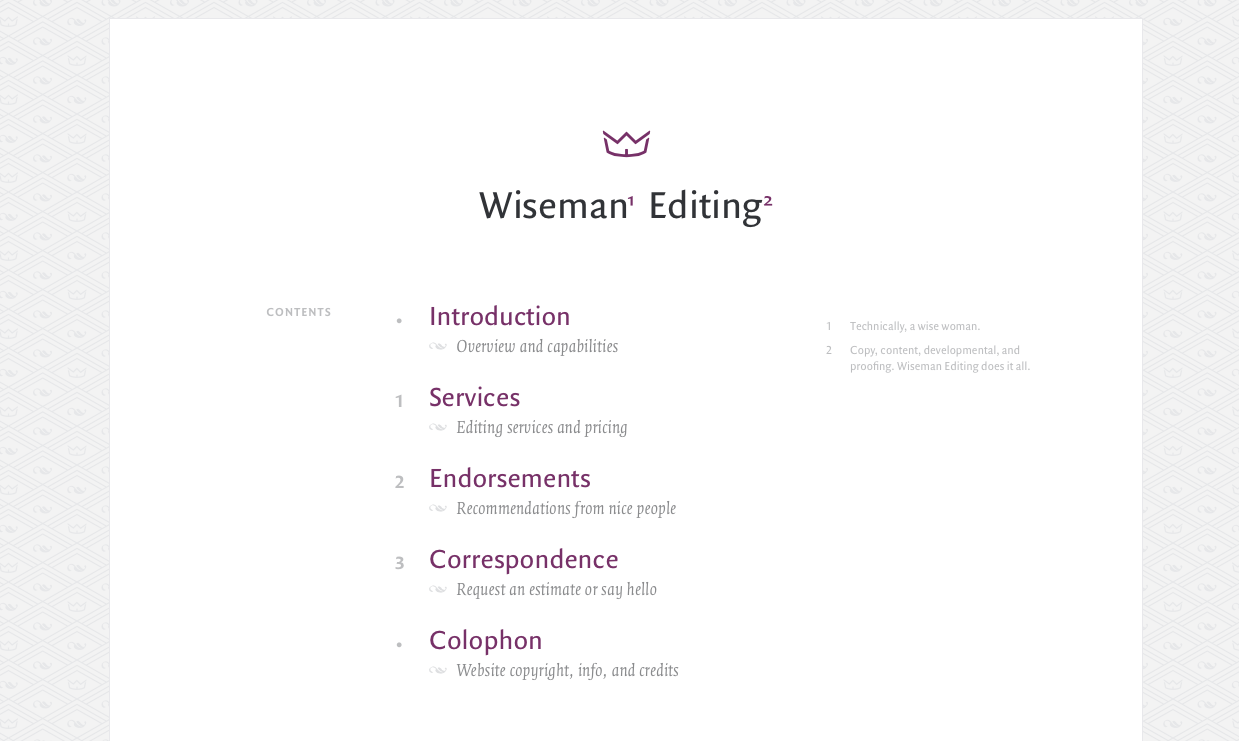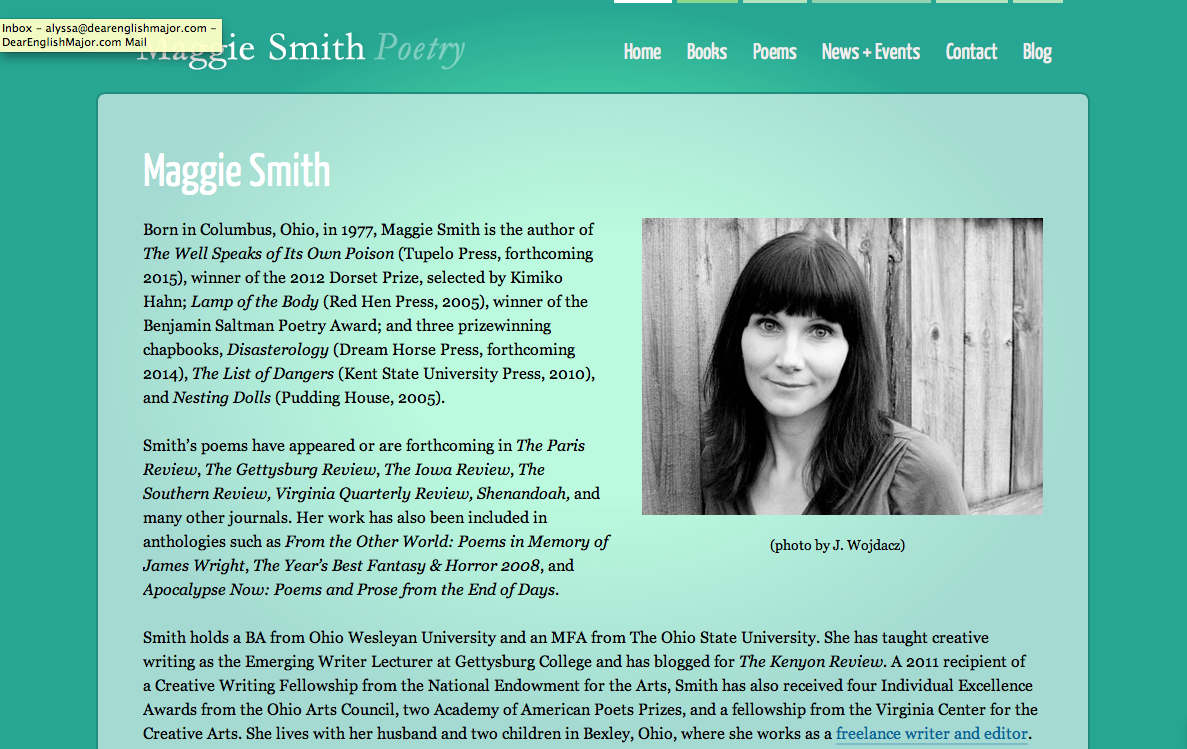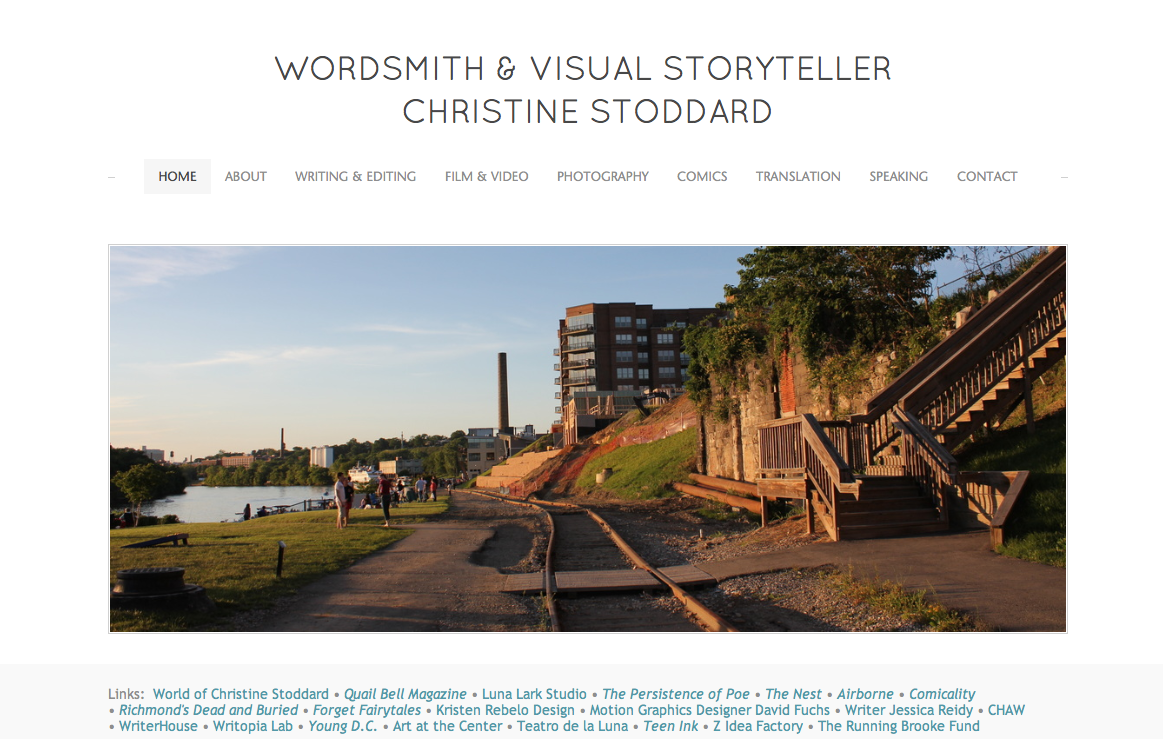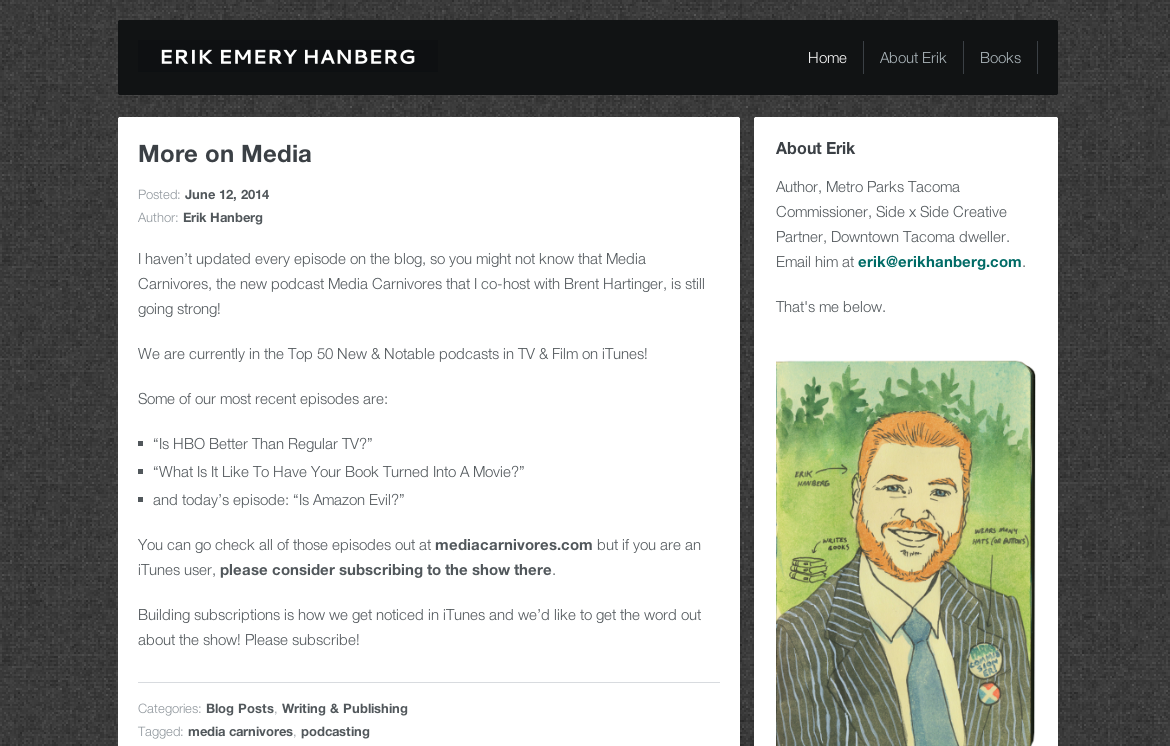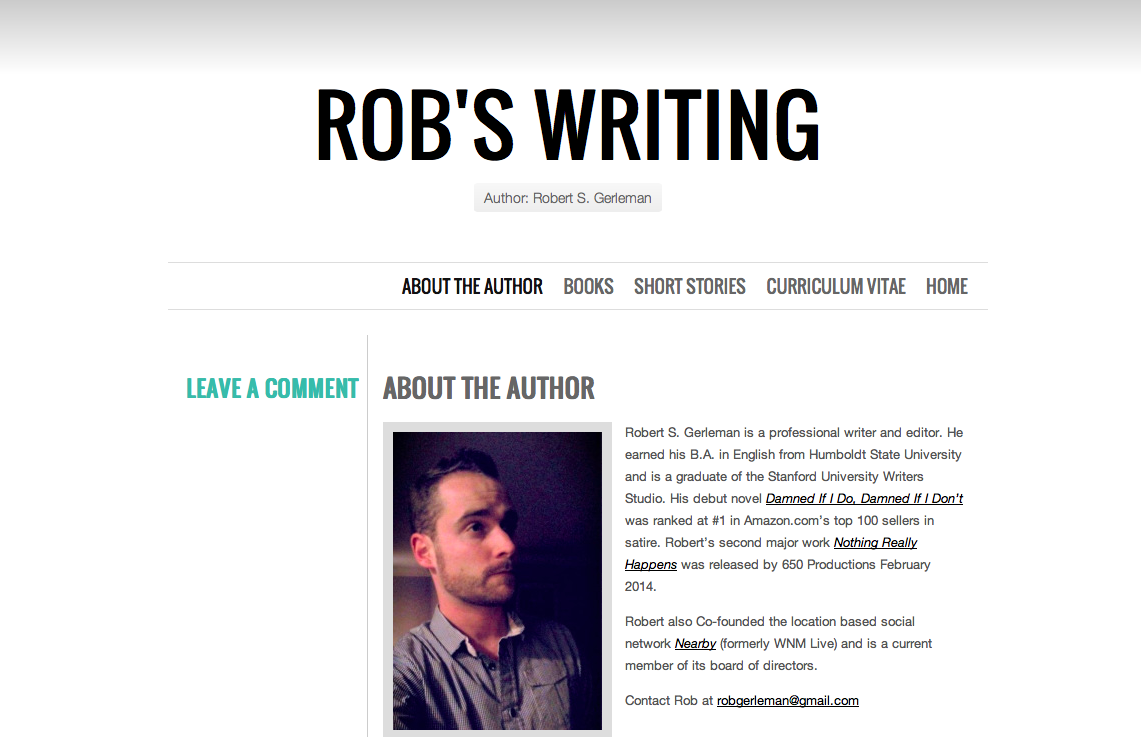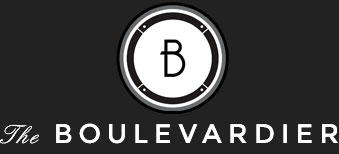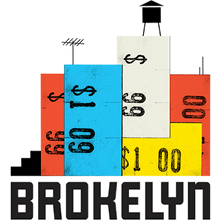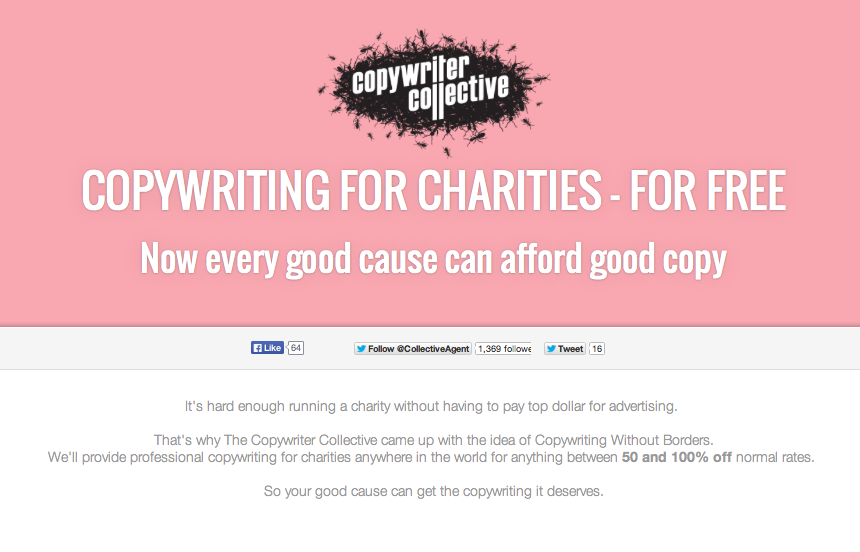I also worked with a bunch of cool cats at The Deaf Professional Arts Network. It was founded by deaf rapper Sean Forbes, and ran by his equally talented friends, all who had some form of hearing difficulty. As of this writing (28/5/2014), they’re over in Israel with a friend of mine, rocking the house. I did some market outreach for their fall tour at the time, edited their website, and wrote some of their newsletters. I wish them every success, but they’re so friggin’ cool it doesn’t even matter.
Even prior to that, while I was still in college, I interned for Driven Solutions as a copywriter, which was my foot in the door to my first big boy job. I also interned as a communications intern at The Scarab Club, an awesome artsy group of folks behind the Detroit Institute of Arts. At Driven, I proofread radio scripts, wrote radio scripts, and voice acted. At the Scarab Club, I wrote social media posts and archived their records.
Tell us about how you found your first job, and how you found your current job (if different).
Alright. To be honest, my first job was as a paperboy, but I’m pretty sure you don’t want to hear about that.
My first job where I was actually paid to write was with Driven, partly because they remembered that I worked really hard for them as an intern. As an intern, yes, I did have to do some writing tests, which my future boss liked. I was always there when I said I would be, stayed for as long as I said I would, and worked the whole time I was there.
I made sure to have a portfolio website set up. It wasn’t much at the time, and to be honest, it’s still not as cool as it should be, but I made sure that the work I was the most proud of and showed me in the most versatile light was first and foremost.
As far as an application process, it was really just an email conversation that led to an interview where I was explained the job. I didn’t have a lot of advertising experience, but they knew that I was a quick study. I was hired because of my versatility and potential, and I really have to thank him for taking a chance on me. I like to think I paid him back as best as I could.
What was another writing-related job that was important in your career?
Now, if you’re referring to a job as one where I actually got paid, then this tidbit stops here. A lot of my work has been for free, because I’m just not “there” yet. But another job that I consider important to my career was working with Michigan Opera Theatre. I was exposed to several different things I could write and add to my repertoire, and getting an article I wrote published gave me a huge boost of confidence.
What did you do in college to prepare for your post-grad life?
I was a late bloomer in college. I didn’t know I wanted to be a writer until sophomore year, and didn’t get involved in extracurriculars and scholarships until late junior year. But when I knew what I wanted to do, I jumped in with both feet. I hooked up with a really great internship coordinator who would become my mentor and really dear friend. He found my internship at the Scarab Club, and arranged my first meeting with Driven. After a really great experience in a creative writing workshop, I wanted to continue my experiences with that.
So I founded a literary organization, the Wayne Writers’ Forum. I like to start from the ground up, so to speak. I used my position there to immerse myself in all kinds of writing, from professional forms for public events to a personal tone I used in my newsletters. It was a great opportunity to unite the writerly folk at my university. It’s mainly a commuter campus, and I wanted to work to get everyone together and help them improve their craft.
While working with the Forum, I also took a position as the Editor-In-Chief of the Wayne Literary Review. It was an awesome experience that exposed me to the publishing process and tested my ability to delegate responsibility among my other editors, while also doing a rather good amount of editing myself. I love editing almost more than I do writing, and I was completely in love with it.
What is your advice for students and graduates with an English degree?
If you write regularly, congratulations, and don’t ever stop. However, try to make time to make sure that you actively search out venues for your work. Opportunities to work with others who are doing things you do are not to be missed. One of the best and hardest to follow pieces of advice I’ve heard was to avoid keeping my writing in a vacuum. It’s my baby, you know? It’s always a work in progress. But as a writer, you need to be ready to say goodbye to your work and share it with others. Otherwise, how are you going to get those compliments to stroke your ego?
I can’t recommend self-help books because I’m not that kind of guy, but I can recommend optimistic music. I’ve been really into Chance The Rapper lately. His Acid Rap EP is amazing. As far as a book, the one book that made me want to be a writer was Stephen King’s On Writing. I suggest the audiobook. Steve’s croaky tenor gives so much more to the no-punches-pulled tone throughout the book.
The stuff I worked on outside of my classes was truly the stuff that taught me the most about the real world: time management, getting shit done, and getting it done well are the most important things you can learn. Everything is a deadline, and your classes are a good way of getting an idea of how important deadlines are, but the more you load your plate, the closer you get to how the real world is when you get out. Get busy. I’m not saying don’t have fun.
Find things you love.
I’m saying get busy having fun.
Feel free to check out my front page at about.me/seeriv, Take a look at my LinkedIn page if you’re interested in connecting with me on a more professional level. If you’d like to see some of my more recent publications, check out my profiles at BellaOnline and TheRichest.












